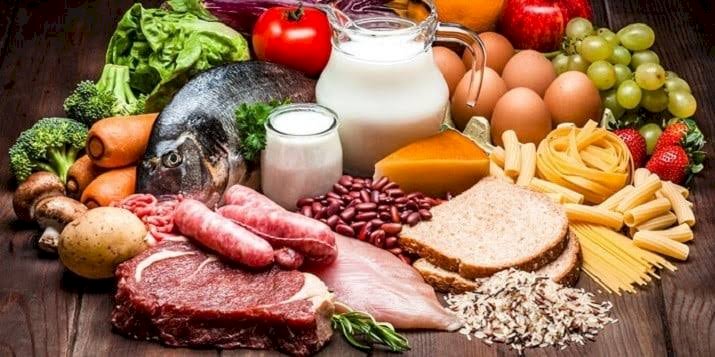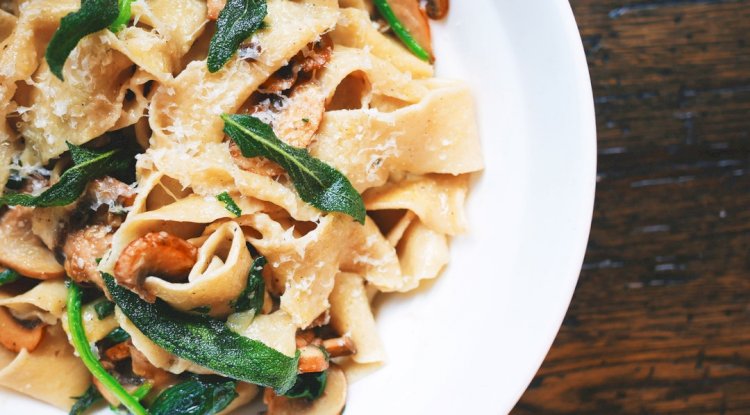Protein Or Carbohydrates - Which Is Better For Building Muscle Mass?
A look at the different roles of proteins and carbohydrates in your diet as regards bodybuilding. Both protein and carbohydrates are essential macronutrients that the body requires to sustain energy and health. Still, the battle of carbohydrates vs. protein for muscle gain continues.

On the losing end is carbohydrates, getting so many thumb downs, it wouldn't be surprising if you didn't give them much credit in your muscle-building routine. But you just might be surprised at how much they can impact your bulking up process.
The Review
A balanced diet that includes the recommended daily intakes of these carbs and protein for your body type, in addition to strength training, improves your chances of building muscle mass. Because carbs and protein play different roles in muscle production, the most efficient gains occur when you have enough of both in your diet. So, don't focus on just one or the other; keep your diet balanced as much as possible.
Role of Carbohydrates
Carbohydrates play a crucial role in supplying your muscles with their primary source of energy in the form of glucose. After you eat a carbohydrate containing food, your digestive system breaks it down and distributes the resulting glucose, via the bloodstream, to your tissues, organs, and muscles. You either use glucose quickly, based on your body's requirements, or store it in the liver and skeletal muscles as glycogen to use later.
During exercise, your body is more likely to tap into the glycogen storage, but if your body doesn't need additional carbohydrate energy, it doesn't dip into the supply. Whether your body has readily available glucose or needs to dip into your glycogen stores, it requires energy to be able to work out. And a diet high in carbs can help to build muscle and burn fat while providing that energy.
Role of Protein
Protein is a source of fuel to the muscles, but its more significant role is as the basic building block of cells, which build or repair tissue and muscle. Chains of small molecules, called amino acids, are the building blocks of protein. Your body creates non essential amino acids but must get another form of these molecules, called essential amino acids, from animal based foods that contain protein.
Because of protein's primary role as a building block, it generally doesn't serve as a muscular energy source unless your body doesn't have enough carbohydrate, or glucose, readily available. So, while protein supplies the materials to help build your muscles, carbs are more important than protein for building muscle because of the workout energy they provide you.
How does both sources affect building muscle mass?
Effects On Building Muscle Mass
Although protein is critical in building and maintaining muscle, ingesting more than your body can use doesn't lead to larger or stronger muscles, according to the U.S. Anti Doping Agency. You can improve your chances of building muscle mass by eating a well balanced diet, including low fat sources of carbohydrates and protein.
Consuming carbohydrates two to four hours before exercise will optimize glycogen stores, or muscle energy according to a study in the May 2014 issue of Nutrients. A study from the February 2018 issue of Journal of the International Society of Sports Nutrition recommends consuming a healthy protein source before and after a workout to promote muscle synthesis and repair. You may enjoy a smoothie filled with high protein fruits for muscle building and nutrient replenishing.
How Much Protein Is Enough Protein?
In a study published in the Journal of the International Society of Sports Nutrition, researchers compared the muscle development of three groups of athletes on the same exercise regimen, but different levels of protein intake. One group was given less than the daily recommended amount (1.4g/kg of body weight), one group the recommended level (1.8g/kg of body weight), and one group over the daily recommend level (2.0kg/ of body weight).
The researchers found no recorded benefit in strength or body composition changes in the group that exceeded the recommended amount of protein needed for strength training. They found that 0.8 – 0.9 grams per pound of bodyweight was sufficient to see favorable changes in body composition. If you want to build muscle, increase your dietary protein intake, but protein is not the only macronutrient responsible for muscle growth. Protein automatically gets the credit for building strong muscles, but let’s not forget about your carbohydrate intake.
The Un-noticed Role Of Carbohydrate In Muscle Growth
If protein is so essential to muscle growth, why put an emphasis on carbs? Well, sadly carbohydrates don’t get enough credit when it comes to the important roles they play in muscle gains. For one, carbohydrates help replace glycogen and aids in enhancing the role of insulin when it comes to transporting nutrients into the cells, including your muscles. Combining protein and carbs also has the added advantage of limiting post-exercise breakdown and promoting growth.
Think about it this way: building anything worthwhile takes a lot of time, energy, and resources. Building muscle is no different. The body requires a lot of energy to power through workouts that result in bigger, stronger muscles. Where does the body get most of that energy? Usually from carbohydrates.
Since we have established the silent yet significant role carbohydrate plays in Muscle growth, question is:
What Kind Of Carbohydrates Should I Be Consuming?
There are two types of carbohydrates: simple carbs and complex carbs.
Simply put: Simple carbs are a quick, sporadic source of energy, while complex carbs are a good source of steady energy.
Complex carbs may not be as readily available for immediate energy as simple carbs are, but they’re more efficient and healthier. Complex carbs provide sustainable energy, which means the energy is constant and there’s no “crash” like with simple carbs. Because of their slow-release properties, complex carbs should be the largest component of daily energy intake. What most people don’t know is the role that complex carbohydrates play when it comes to muscle gains.
Balancing Your Carbohydrate Consumption
The amount of complex carbs you eat depends on your body composition goals. Generally, very low carb consumption (<5%) is used for weight loss, while adequate carb consumption (55-60%) is used for muscle gain. Athletes on the other hand may pile on the carbs as they are required to train day-in and day-out. So it makes sense that they should consume a higher carb diet than the average person because they have higher energy needs. For non-athletes, it’s generally suggested to adopt a more balanced diet. Even if you’re mostly sedentary, you should still consume some carbs to fuel your daily activities.
Pre - Workout and Post - Workout
When it comes to carbs, the time of consumption impacts athletic performance and muscle building.
Pre - Workout
It’s important to consume complex carbohydrates before an intense workout so that glycogen stores are full enough to fuel the training. Consuming complex carbs immediately before a workout could lead to digestive distress, so try to limit complex carb consumption up to a few hours before an intense workout. If you’re short for energy before an event, lean towards simple carbs.
Post - Workout
After exercise, it’s important to consume complex carbs to replenish those glycogen stores for later use.
Wrapping Things Up
Before making any changes to your body, it’s a good idea to have the facts. When looking more closely at the co - dependent relationship between proteins and carbohydrates, we gain a clearer understanding of how these vital building blocks work in our bodies and lead to stronger makeup. With this knowledge, active individuals can more clearly define their health goals and get themselves on the road to long lasting success. Bottom line, both nutritional sources are essential for muscle growth, key here is balance.
What's Your Reaction?





















